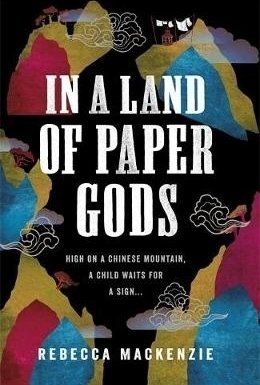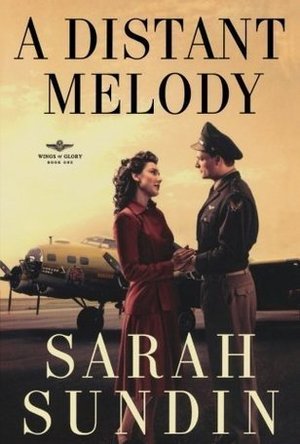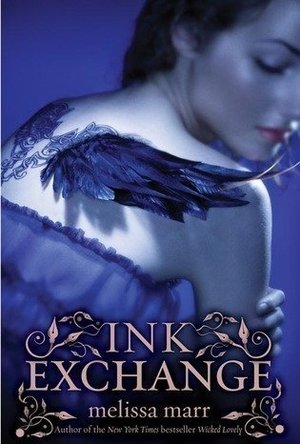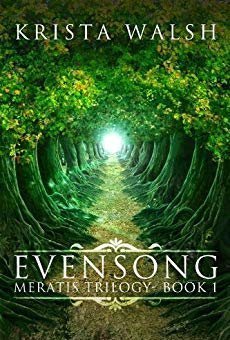
Cube World Craft: Build, Mine, Exploration - Lite
Games and Travel
App
Dig, fight, explore & build. Join the miners! Sandbox exploration, survival & creative mode moved to...

Toca Hair Salon 3
Education and Entertainment
App
Welcome to Toca Hair Salon 3! Our most popular app series returns, better than ever! What do you...

Little Panda: Habits & Manners
Education and Games
App
For more videos, subscribe to BabyBus on YouTube! ►►https://goo.gl/llI2fX Keeping good...

Sago Mini World
Education and Entertainment
App
Get unlimited access to our complete collection of 20+ award-winning games! Travel with Harvey,...
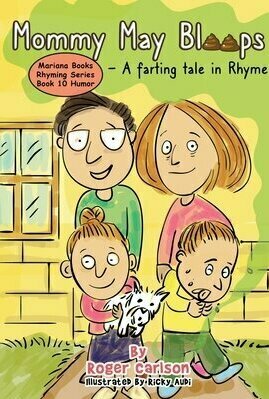
Mommy May Bloops - A Farting Tale in Rhyme (Mariana Books Rhyming #10)
Book
Mommy May is a perfect mom in nearly every way. She loves her kids, like every mother would. She is...
Children Humor Farting
Hazel (1853 KP) rated In a Land of Paper Gods in Books
May 25, 2017
“My name is Henrietta S. Robertson. That’s my English name… My Chinese name is Ming-Mei.”
As the child of members of the Interior Alliance Mission, Henrietta has grown up between two cultures: English and Chinese. From the age of six she was sent to boarding school on a mountain in the Jiangxi Province, where four years later she remains as a small, pale, lonely girl.
For a girl as young as ten, Etta has a big imagination. She decides that God has called her to be a prophetess, and encourages the other girls in Dormitory A to join her in a Prophetess Club. This results is Etta getting into all sorts of trouble as she naively goes about inventing prophecies; all the while the Second Sino-Japanese War gets closer and closer to their mountain sanctuary.
Told mostly from Etta’s point of view, In a Land of Paper Gods is a hilarious historical novel about a young girl’s innocence. A large part of the story is about the missionary school rather than the ongoing war, therefore the focus is on Etta’s interpretation of the bible and her understanding of the differences between Western Christian and Chinese culture. However, once America joins the war effort, it is shockingly quick how the tale can go from humorous to heartbreaking.
The other character who plays a large part in this novel is Muriel, a dorm aunty, whom Etta regards highly. Muriel wanted to be a missionary but instead has found herself working at the Lushan school, keeping an eye on the ten and eleven year old girls. Although most of the book is written in Etta’s first person narrative, Rebecca Mackenzie has also included the occasional diary entry from Aunty Muriel. Since these are so few, it is not clear what their purpose is, as the story could easily continue without them.
Despite being an historical novel, In a Land of Paper Gods focuses less on fact and more on the impact the times had on a young girl. It is interesting to see the character development of Etta as she goes from a naughty, attention-seeking schoolgirl, to a young woman who must fend for herself. All the while she has her belief in God to resort to for explanations about the world she is living in. The reader also witnesses the growth of a relationship between Aunty Muriel and Etta. To begin with it is that of an adult and child, however it ends with them being equals in their suffering.
In a Land of Paper Gods is a pleasure to read. It is comically entertaining to begin with as the reader grows to love the characters, particularly mischievous Etta. It is hard to put the book down due to pure delight of the storyline, yet when the story turns darker it is just as difficult to put down, as we want to find out if the characters are going to be okay.
For some people, the Christian content will not mean anything, however it is possible to enjoy the novel without a religious background. For those, like myself, who do have a Christian upbringing, this aspect makes the story even better. Readers may recognize themselves or of their childhood in Etta, particularly her understanding of the bible.
Overall I loved this book. I was not sure what to expect, and have often found historical novels set in China to be rather dull. Therefore I was pleasantly surprised to discover how good this book was. I encourage others to read In a Land of Paper Gods, and I look forward to reading what Mackenzie writes next.
Haley Mathiot (9 KP) rated A Distant Melody (Wings of Glory, #1) in Books
Apr 27, 2018
I adored A Distant Melody. From the second I opened it, it captured my imagination and swept me away.
The plot seemed simple at first, but it kept taking little twists and turns that I didn’t expect. It was suspenseful, but not in a thriller kind of way. There were times when Walt was flying that were very exciting and thrilling, but it wasn’t enough to put it in that genre. It had just enough. The pacing itself was perfect—nothing felt rushed. I hate a rushed romance, it’s implausible. A Distant Melody is the perfect speed. I devoured it within a few hours.
I love these characters! I want more with them!!! One awesome aspect about A Distant Melody is it is not a victim of “happy-land syndrome,” or “perfect plot” syndrome. The story didn’t seem to work out just perfect with everyone happy all the time, and everyone talking about God all the time, and everyone acting like perfect Christians all the time. No, they were real people who sinned and suffered the consequences, both from other people and from their guilt and grief. There were times and parts where you say “Oh no! Now he’s going to think this!” or “Oh no she hasn’t gotten his letter yet!” and so on. However, their confessions of said sins were also such a key part of the story, and made you love them so much more.
I liked the writing a lot. Sundin has a clear concise way with words, and paints a picture without being poetic. I also loved her wit and humor, and those Sarah-Dessen-like running jokes. You have to love those running jokes that run through the whole book, that make you feel like you’re part of the character’s life.
I know I usually don’t say anything about the cover because generally I don’t care about the cover. In this case, the cover is perfect. It has every detail mentioned in the book, from the right clothing and hairstyles of the characters to the detail work on the air plane.
A very important thing about a Christian novel is it shouldn't feel like it’s preaching at you. There was prayer, Bible verses, hymns and such. But it didn’t feel cheesy and fake: partially because of the characters (as I mentioned above) and partially because although they were mentioned and discussed, they weren’t hammered. Basically, this was not Sundin’s way of publishing a theology book. It’s a novel, and it feels like one.
I think I loved everything about this book. I loved the characters, I loved the writing, I loved the plot and the pacing, I loved the jokes, I even love the cover. I can’t think of one thing that I didn’t like, or that distracted me from the story. I devoured A Distant Melody, thoroughly enjoyed every part of it, and I cannot wait for the next book.
Rachel King (13 KP) rated Ink Exchange (Wicked Lovely, #2) in Books
Feb 11, 2019
I like the change in main characters, as we get to see this world through other characters' eyes as well as learn about different aspects that Keenan or Aislinn may not be familiar with. I had a difficult time finding a character to really love, as all three of the main characters, Leslie, Irial, and Niall, all seemed to have major faults that I had a hard time getting around. The theme for this book seemed to be the darker side of humanity and how deeply entrenched people can get into the "gray" area of life, while still believing that they are not doing anything wrong. Irial wants to only use Leslie, just as he has for every other mortal, but then he falls for her. Leslie wants to be her own person and hates her brother for his druggie lifestyle, but then becomes an addict just like Ren. Niall has shunned the Dark Court for all it stands for, even denying his own nature, but then wants Leslie so bad that he unknowingly uses what he is and what the Dark Court is about to try and lure her to him. In a word, they all behave like hypocrites, but Marr is such a good writer, that I find myself feeling sorry for all of them at some point. While in many fantasy genre works, the female lead often has to choose between two guys, Marr takes a completely unpredictable approach, and I think that I like this ending the best of all possibilities. Plus, since this is only the second book in a series, there is potential for Leslie to change her mind in the long run as she becomes more comfortable in her own skin.
The way that Marr approaches the horrific trauma that Leslie endured prior to this book's beginning is handled very delicately, as it should be. It is never really described in detail what exactly happens to her, and it is mostly left up to the reader's imagination, which I think is a smart move in that girls who have been in a situation similar to Leslie's can relate to her and feel like they have a voice in her words and thoughts. This alone is what makes this book both poignant and powerful. The fact that both males vying for her affection try to rescue her from this trauma in his own way is what redeems both of them for me.
Politics run heavy in this series, and while I am not really a fan of politics in real life, fantasy books often make it much more interesting, Marr's writing being no exception. The dynamics between the faery courts are quite intriguing and I think they seem to balance one another out well, even though at first glance it might seem like some should be kept over others. I find myself constantly wondering about the High Court and its Queen, Sorcha, which I can look forward to in the third installment in the series, Fragile Eternity (Wicked Lovely).
I enjoyed the idea Walsh had about how novels and books being written could not be completely made up but a possible window into another world that allows us to document what's going on and even influence the way certain events take shape in another world. Though the idea is fantastic, questions and statements Jeff's characters gave him to think on, I feel there were a lot of questions, that I hope, will be answered as the trilogy goes on. I believe Jeff hopes to find those answers as well.
Evensong wasn't just about an author trying to finish off a series he was working on. It was about how in times of chaos, even the weakest of men can become brave and do reckless things. It's about how loss and friendships grow, and how the imagination is the greatest gift of all. To see someone lose so much and still remain strong and unbreakable was truly amazing. To watch how Jeff would overcome how his decisions about the tale he was trying to weave making him truly evil in his characters eyes, was a feat I would have never thought to be possible. At first it seemed like he was truly a heartless man with intent on getting his way, but a the book went on, you could clearly see him begin to change his mind and attitude on the whole situation.
I enjoyed watching Jeff grow and change into a better man. To see him confront danger for the sake of who he loves and to give up what he loves and uses to help him make money was just too much for me. I couldn't put the book down. In fact, it took a few days to completely write anything on it, as my mind was blown. The details of each character in Evensong was truly a delightful treat. To see how they interacted and did things you wouldn't expect kept me on the edge of my seat.
I really enjoyed how in some of the most intense scene or situations, the characters would say or do something that would make you think, cringe, or laugh. I never felt there were more characters I could relate to in one way or another in a book than I feel about Evensong. Seeing how being childlike by riddling someone with questions just to be annoying, and how some ideas never truly leave your mind even when its hard to think you will make it out of a sticky situation alive, was an absolute treat. I can't say that some situations were easy to read through, as they would pull at my own heart strings, or cause me to become anxious for the protagonists, but I can see it was kept exciting beyond words.
I believe that anyone who enjoys watching characters struggle and grow would enjoy Evensong. I would rate this book 4 stars out of 5 stars for its energetic storytelling, the humor, action, and character development. Having not read the rest of the trilogy and not knowing the answers to my own questions, I can't say much else in the terms of the story as a whole being excellent, but I do intend to find out.
Bong Mines Entertainment (15 KP) rated Eric B for President: Term 2 by Eric Bellinger in Music
Jun 7, 2019
“Naked in the White House”
The first song off “Term 2” was “Naked in the White House“, which is filled with visionary thoughts of Bellinger and his main squeeze, walking around naked in their home. Due to its potency, we had to replay this song several times before moving on to Make You Mine, a pure tropical fantasy tune.
“Make You Mine”
The Arrad-directed video stars Christina Milian. And it shows Bellinger on an exotic landscape, with an ocean nearby.
“Know/Vibes”
The third track, Know/Vibes featuring ELHAE, is intimate. And Bellinger reminds us that nothing last forever because time is of the essence. So, you gotta get it right, and get right to it. Don’t fake the funk, and make it happen with the one you love.
“Too Cool/Boujee”
Next, we listened to Too Cool/Boujee, a two-part song, which gives off a swaggering braggadocio effect that illuminates inner confident. It’s cool, it’s boujee, and it made us feel good about being who we are.
“Treat Yourself”
Then, Treat Yourself featuring Wale reminded us hard-working people that we gotta treat ourselves by buying the cars that we want to drive, and pulling up to that big house in a neighborhood we wanna live in. And, it won’t hurt to buy that bust-downed Rolex with a gold chain either. We replayed this track several times before moving on to the next one.
“Island”
On Island featuring Tayla Parx, Bellinger returns to the running around naked in the white house theme. But this time, it’s on an exotic island with his main squeeze, with a nearby table for two, probably filled with wine and sh*t like that. But, while the female is cooking, Bellinger is thinking about having her on the menu because she reminds him of wet dishes. Wet dishes? We can say, Bellinger’s imagination is at the peak of the songwriting industry, which is a good thing.
“Coastin”
Coastin pulls the curtains in, and Bellinger dimmers the light. Enough with all the sweet talkin’, wining and dining, now, it’s time for some action. So far, this is the most intimate time on “Eric B for President: Term 2”, and we know it’s going down when Bellinger sings, “Baby, you should come and ride my wave / You so lit, damn, you spark my interest / Let’s go surfing for a couple days / Hop on my board.”
“Malibu Nights”
Malibu Nights featuring Victoria Money is the actual lovemaking scene that we’ve been waiting for. Bellinger sings, “There’s something ’bout those Malibu nights, got me wondering if I could swim in your ocean, girl / Silhouette of your hips got me thinking ’bout stroking, girl.” And then, “Crash into me, I need you tonight / So, bring that lil body over here / Come let daddy whisper in your ear / I’ma tell you what you wanna hear / Rub my fingers through your hair / Put your legs up in the air like / Put them legs up in the air like /Taking off your underwear like…
Whoa-whoa-whoa-whoa, slow it down playboy. No doubt, Bellinger gets it in; and we declare “Eric B for President: Term 2” as an R&B treasure because it’s dope, replay-able, and we could visualize and relate to everything that Bellinger is singing about.
FUN FACT
Bellinger has been successfully leaking ink from his pen. He co-wrote two songs on Chris Brown’s Grammy-winning F.A.M.E., Brandy’s Without You, and Justin Bieber’s Right Here. But, his biggest hits came with Usher’s ‘Lemme See’ and Brown’s ‘Fine China’.
https://www.bongminesentertainment.com/eric-bellinger-term-2-album/
